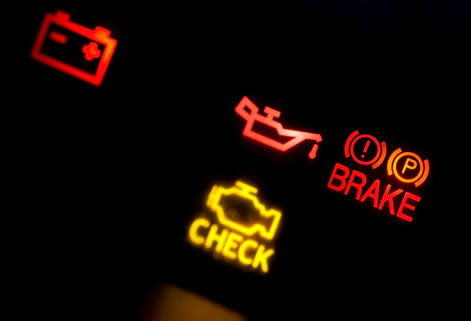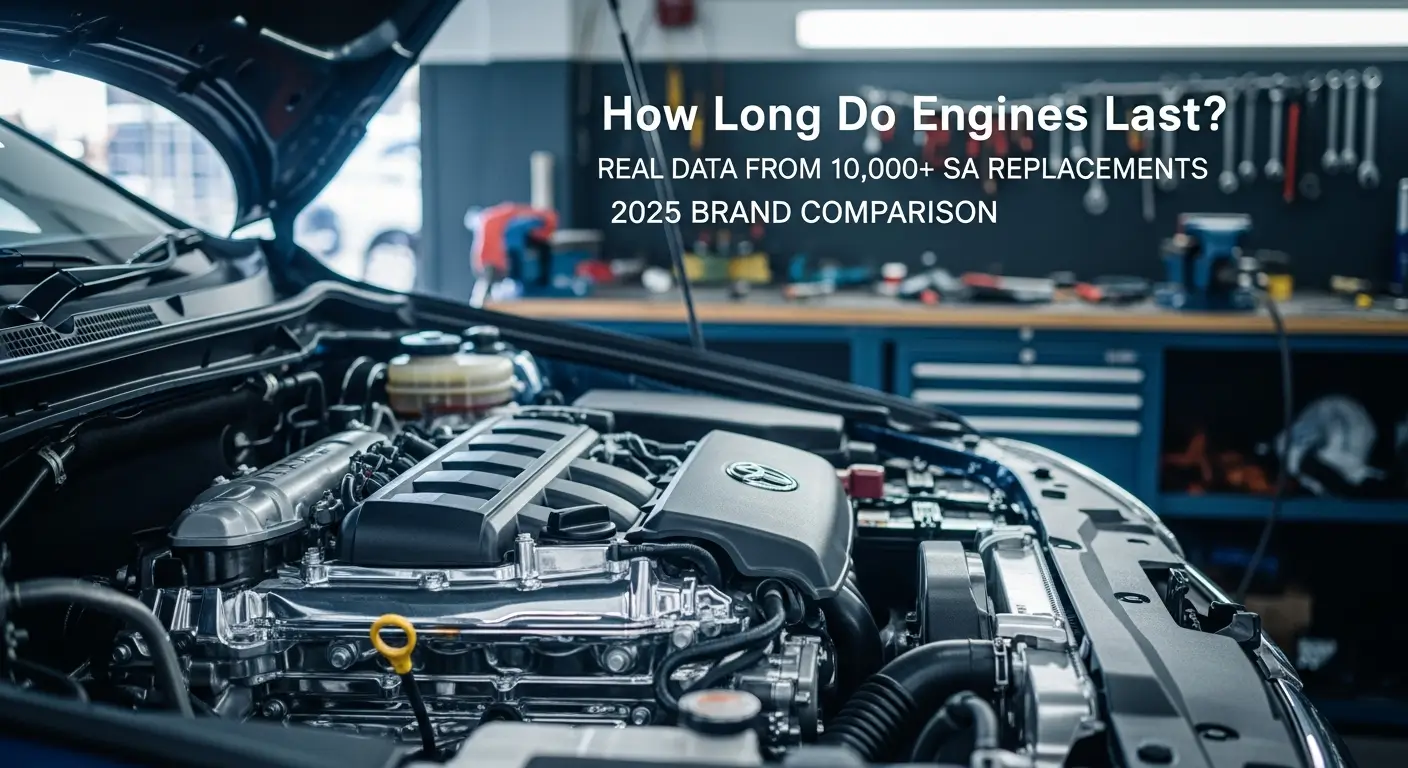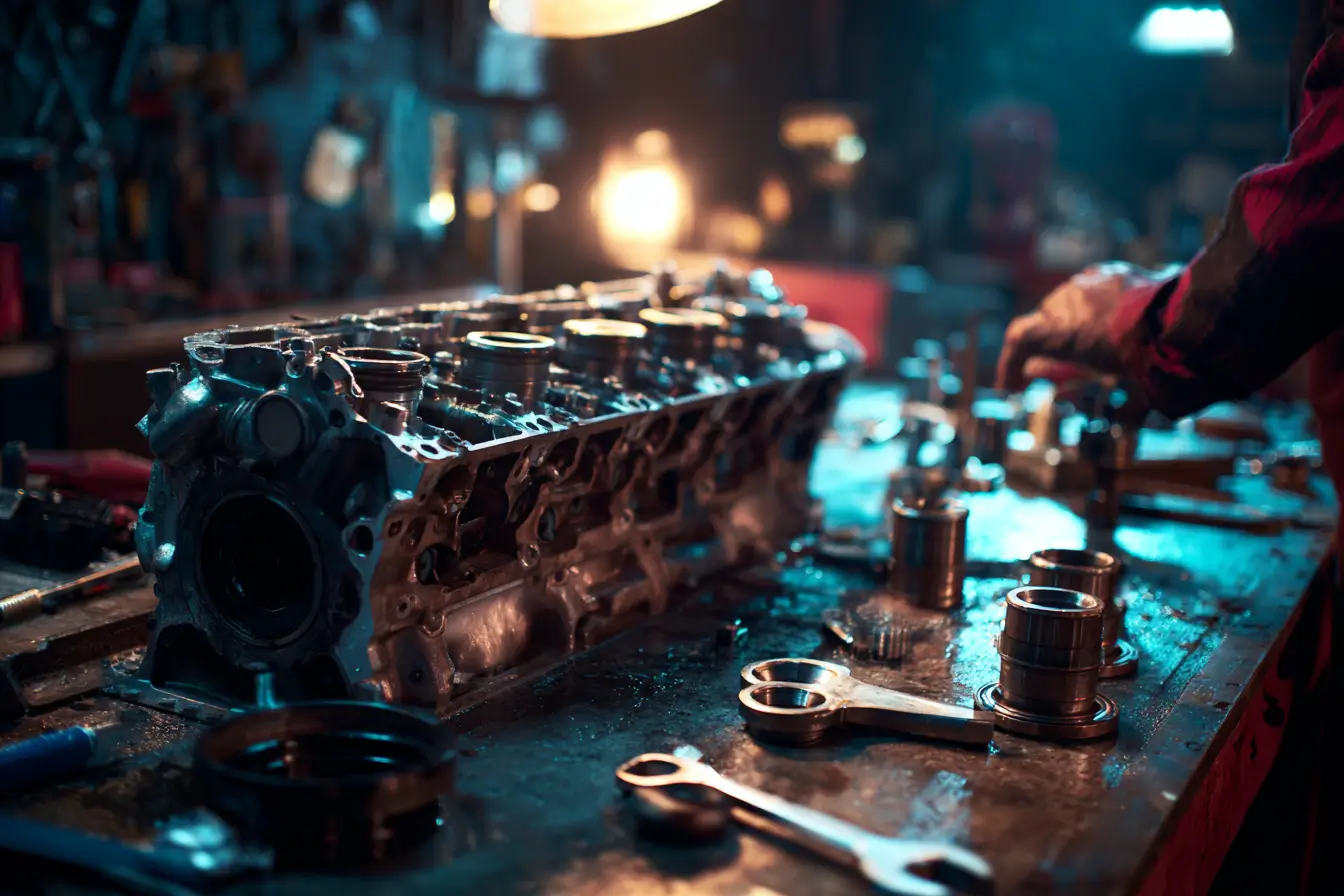
Peugeot Error Codes & Engine Problems: Complete Diagnostic Guide
Key Takeaways
| Error Code | Main Symptoms | Possible Causes |
|---|---|---|
| P0170 | Poor fuel economy, rough idle | Air-fuel mixture issues, MAF sensor failure |
| P0420 | Check engine light, emissions failure | Catalytic converter efficiency below threshold |
| P1336 | Engine misfires, poor performance | Ignition system failure, multiple cylinder misfires |
| P0299 | Low boost, reduced power | Turbo underboost, wastegate problems |
| P0597 | Overheating, cooling issues | Thermostat control system malfunction |
| P2002 | DPF warning light, reduced power | Diesel particulate filter blockage |
🔧 Equipment Needed: OBD-II scanner, multimeter, basic tools
💰 Diagnostic Cost: R450-R750 for professional diagnosis
⏱️ Repair Time: 1-8 hours depending on code complexity
Overview
Peugeot vehicles employ advanced On-Board Diagnostics (OBD-II) systems to monitor engine performance and detect potential issues through Diagnostic Trouble Codes (DTCs). Understanding Peugeot-specific error codes is essential for proper vehicle maintenance, efficient troubleshooting, and cost-effective repairs across their range of petrol and diesel engines.
Peugeot Engine Diagnostic Specifications
| Specification | Details |
|---|---|
| OBD-II Compliance | Standard since 1996 model year |
| Diagnostic Protocols | ISO 9141, KWP2000, CAN Bus |
| Peugeot-Specific Codes | P1xxx, P2xxx manufacturer codes |
| Service Connector | 16-pin OBD-II port under dashboard |
| Diagnostic Frequency | Every 3-6 months or when warning lights appear |
| Common Engine Types | TU, XU, PSA Prince, DV6, HDi |
| DPF System Codes | P2002, P2463, regeneration codes |
| Applications | 206, 207, 307, 308, 3008, 5008 |
Equipment Needed for Peugeot Diagnostics
- OBD-II Scanner: Professional diagnostic tool (R800-R2,500)
- Multimeter: For electrical system testing (R250-R500)
- DPF Pressure Gauge: For diesel particulate filter testing (R400-R800)
- Basic Tools: Socket set, screwdrivers (R300-R600)
- Peugeot Service Manual: Model-specific procedures
1. P0170 - Fuel Mixture Problems
Causes
- Faulty mass airflow (MAF) sensor
- Oxygen sensor malfunction
- Vacuum leaks in intake system
- Dirty or clogged air filter
- Fuel system pressure issues
Symptoms
- Poor fuel economy
- Rough idle or stalling
- Engine hesitation during acceleration
- Check engine light illumination
- Failed emissions test
Solution
- Clean or replace MAF sensor
- Replace oxygen sensor if faulty
- Inspect and repair vacuum lines
- Replace air filter
- Check fuel pressure and clean injectors
DIY Difficulty / Hours
- MAF sensor cleaning: Easy / 0.5-1 hour
- Air filter replacement: Easy / 0.5 hour
- Oxygen sensor replacement: Moderate / 1-2 hours
- Vacuum leak diagnosis: Moderate / 1-3 hours
Diagnostic Tip
P0170 often occurs alongside P0171 or P0172. Check both fuel trims (short and long term) using your OBD scanner to identify whether the mixture is running rich or lean.
2. P0420 - Catalytic Converter Efficiency
Causes
- Catalytic converter degradation
- Oxygen sensor failure (upstream or downstream)
- Engine misfire causing catalyst damage
- Poor fuel quality or contamination
- Exhaust leaks affecting sensor readings
Symptoms
- Check engine light activation
- Failed emissions test
- Reduced fuel efficiency
- Sulfur smell from exhaust
- Poor acceleration
Solution
- Replace catalytic converter
- Replace faulty oxygen sensors
- Repair exhaust leaks
- Address any engine misfires
- Use quality fuel and additives
DIY Difficulty / Hours
- Oxygen sensor replacement: Moderate / 1-2 hours
- Catalytic converter replacement: Difficult / 3-5 hours
- Cost: R3,500-R12,000 for catalyst replacement
3. P1336 - Engine Misfires
Causes
- Worn or fouled spark plugs
- Faulty ignition coils
- Damaged spark plug wires
- Fuel injector problems
- Compression issues
Symptoms
- Engine runs rough or skips
- Loss of power during acceleration
- Increased fuel consumption
- Engine vibration at idle
- Possible backfiring
Solution
- Replace spark plugs and inspect gaps
- Test and replace faulty ignition coils
- Check spark plug wires for damage
- Clean or replace fuel injectors
- Perform compression test if needed
DIY Difficulty / Hours
- Spark plug replacement: Easy / 1-2 hours
- Ignition coil replacement: Moderate / 1-3 hours
- Fuel injector service: Difficult / 3-6 hours
4. P0299 - Turbo Underboost
Causes
- Turbocharger wastegate malfunction
- Boost pressure leak in system
- Faulty boost pressure sensor
- Clogged air filter or intake
- Turbocharger mechanical failure
Symptoms
- Significant power loss
- Poor acceleration
- Black smoke from exhaust
- Unusual turbo noise
- Reduced fuel economy
Solution
- Inspect and clean wastegate valve
- Check all boost hoses for leaks
- Replace boost pressure sensor
- Clean or replace air filter
- Professional turbo inspection if mechanical failure suspected
DIY Difficulty / Hours
- Air filter replacement: Easy / 0.5 hour
- Boost leak testing: Moderate / 1-2 hours
- Wastegate inspection: Difficult / 2-4 hours
- Professional turbo repair: R8,000-R25,000
Turbo Warning
Never ignore P0299 codes. Continued driving with turbo problems can cause catastrophic engine damage due to lack of proper boost pressure and potential oil starvation.
5. P0597 - Thermostat Control
Causes
- Electronic thermostat failure
- Coolant temperature sensor malfunction
- Wiring issues in thermostat circuit
- ECU software problems
- Cooling system blockages
Symptoms
- Engine overheating or running cold
- Poor heater performance
- Coolant temperature fluctuations
- Check engine light
- Poor fuel economy
Solution
- Replace electronic thermostat
- Test and replace coolant temperature sensor
- Check wiring and connections
- Flush cooling system
- Update ECU software if applicable
DIY Difficulty / Hours
- Thermostat replacement: Moderate / 2-3 hours
- Temperature sensor replacement: Easy / 0.5-1 hour
- Cooling system flush: Moderate / 1-2 hours
6. P2002 - DPF Issues
Causes
- Clogged diesel particulate filter
- Faulty DPF pressure sensors
- Incomplete DPF regeneration cycles
- Short trip driving patterns
- Poor quality diesel fuel
Symptoms
- DPF warning light illuminated
- Reduced engine power
- Increased fuel consumption
- Black smoke from exhaust
- Engine going into limp mode
Solution
- Perform forced DPF regeneration
- Replace DPF pressure sensors
- Professional DPF cleaning
- DPF replacement if severely damaged
- Change driving patterns to include highway driving
DIY Difficulty / Hours
- DPF regeneration procedure: Moderate / 1 hour
- Pressure sensor replacement: Moderate / 1-2 hours
- Professional DPF service: R2,500-R15,000
How To Read Peugeot Fault Codes
To diagnose Peugeot error codes effectively:
- Connect OBD-II Scanner: Plug scanner into diagnostic port under dashboard
- Turn On Ignition: Key to ON position (don’t start engine)
- Read Codes: Follow scanner instructions to retrieve stored codes
- Record All Codes: Note both current and pending codes
- Clear Codes: Only after repairs are completed
- Test Drive: Verify codes don’t return after clearing
Diagnostic Video Guide
Preventative Maintenance Tips
Regular Service Schedule
| Service Type | Interval | Components |
|---|---|---|
| Engine Oil Change | Every 10,000-15,000 km | Oil, filter, seals inspection |
| Air Filter | Every 20,000 km | Engine air filter, cabin filter |
| Spark Plugs | Every 40,000-60,000 km | Inspect, gap, replace as needed |
| Fuel System | Every 60,000 km | Injector cleaning, fuel filter |
| DPF Service | Every 80,000 km | Professional cleaning or replacement |
Critical Maintenance Items
- Use Quality Fuel: Premium diesel/petrol reduces carbon buildup
- Regular Highway Driving: Helps DPF regeneration in diesel models
- Monitor Coolant: Prevent thermostat and cooling system issues
- Check Air Filter: Clean airflow prevents mixture problems
- Professional Diagnostics: Annual OBD scan to catch issues early
FAQ
How often should I scan my Peugeot for error codes?
Perform diagnostic scans every 6 months or immediately when warning lights appear. Regular scanning helps catch issues before they become expensive repairs.
Can I drive with a P0420 catalytic converter code?
While not immediately dangerous, P0420 should be addressed promptly. Continued driving may worsen catalyst damage and lead to more expensive repairs.
What’s the difference between P1xxx and P0xxx codes?
P0xxx codes are universal OBD-II standards used by all manufacturers. P1xxx codes are Peugeot-specific manufacturer codes that provide more detailed diagnostics.
Why does my DPF keep clogging?
DPF clogging typically results from short trip driving patterns. Take your vehicle on 20-30 minute highway drives weekly to allow proper DPF regeneration.
Are Peugeot diagnostic tools expensive?
Basic OBD-II scanners cost R800-R2,500. Professional Peugeot-specific tools are more expensive but provide deeper diagnostics for complex issues.
Can I clear codes myself?
Yes, but only clear codes after completing repairs. Clearing codes without fixing the underlying problem will cause them to return and may worsen issues.
Conclusion
Understanding Peugeot error codes is essential for maintaining your vehicle’s performance, reliability, and longevity. Regular diagnostic scans, proper maintenance, and prompt attention to warning signs can prevent minor issues from becoming major repairs.
When professional diagnosis or engine replacement becomes necessary, Engine Finder provides access to quality Peugeot engines for sale and professional automotive services across South Africa.
References and Further Reading
Technical Resources
Diagnostic Tools
Community Resources
Related Articles
Explore more insights on similar topics

How Long Do Engines Last on Average? Complete Longevity Guide
Understand real-world engine lifespan ranges, warning signs, lifecycle stages, costs, and maintenance best practices for South African drivers.

How Does an Engine Overhaul Work? Complete Guide to Engine Rebuilds
Learn everything about engine overhauls: types, warning signs, process, costs, and when to rebuild vs replace your engine in South Africa.
.webp)
Timing Chain vs Timing Belt: Complete Guide to Cambelt Replacement & Lifespan
Learn everything about timing chains and timing belts (cambelts): differences, lifespans, replacement costs, and which is better for your engine in South Africa.
Important Disclaimer
This content is for informational purposes only and is based on research from automotive industry sources. Engine Finder is not a certified automotive repair facility. Always consult with qualified automotive professionals before performing any repairs or maintenance. Improper repairs can result in personal injury, property damage, or vehicle malfunction. We assume no responsibility for actions taken based on this information.
